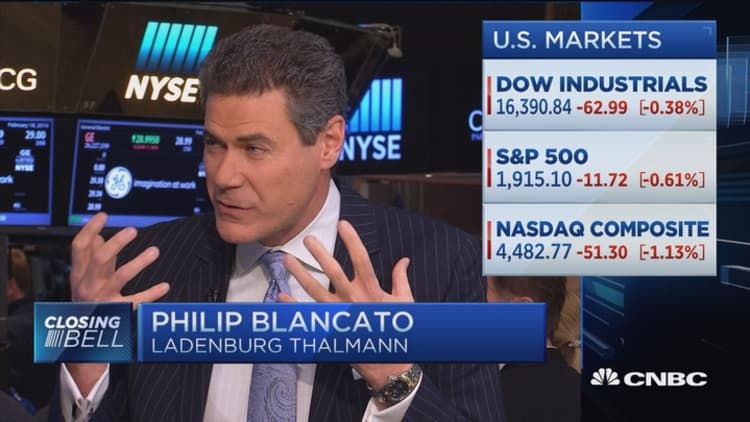
Total petroleum deliveries for January, a measure of demand in the U.S., rose 0.8 percent, to 19.4 million barrels a day, the highest January levels since 2008, API said Friday.
"The industry also produced record amounts of gasoline for the month of January that more than met rising consumer demand," Erica Bowman, API's chief economist, said in a release. "Additionally, refineries found plenty of international buyers for excess production leading to a record-setting January export level."
Motor gasoline deliveries also recorded their best January since 2007. API also said crude oil production decrease 1.4 percent in January year over year, to average 9.2 million barrels per day.
Oil prices fell on Friday as talk of a plan by some producers to freeze output levels was tempered by continued concerns of an oversupplied market after a record build in U.S. crude inventories.
Brent futures dropped $1.32, or 3.85 percent, to $32.96 a barrel. U.S. crude settled at $29.64 a barrel, down 3.67 percent, or $1.13. WTI, however, managed to rise 0.67 percent for the week.
Investors also digested the latest Baker Hughes rig count data, which showed a drop of 26. U.S. oil rigs have now fallen for a ninth straight week, and now total 413. Baker Hughes also said rigs have fallen by 606 year over year.
Oil prices rose by more than 14 percent earlier in the week on Saudi Arabia and Russia's agreement to freeze output at January levels.
But while Iranian Oil Minister Bijan Zanganeh welcomed the plan, he fell short of committing to it and Iranian sources told Reuters that capping output is not enough to rebalance the market.
Saudi Arabia repeated that it had no plans to cut output and would continue to protect its market share.

"If other producers want to limit or agree to a freeze in terms of additional production, that may have an impact on the market, but Saudi Arabia is not prepared to cut production," foreign minister Adel al-Jubeir told Agence France-Presse in an interview on Thursday.
Russia's first deputy-energy minister Alexey Texler said on Friday an output freeze deal could clear half of a global oversupply of 1.8 million barrels per day (bpd).
"The OPEC output freeze, coupled with very affordable retail gasoline fuel prices, should help push oil back to $47 by June," Bank of America Merrill Lynch said in a note on Friday.
Iraq's oil minister Adel Abdul Mahdi said on Thursday talks would continue between OPEC and non-OPEC members to find ways to restore "normal" oil prices after a meeting in Tehran on Wednesday.
A record build in U.S. crude inventories last week stoked concerns over persistent global oversupply. Crude stocks rose by 2.1 million barrels to a peak of 504.1 million, data from the U.S. government's Energy Information Administration (EIA) showed on Thursday.
The recovery at the back end of the WTI curve this week is prompting U.S. shale producers, for the first time in months, to inquire and place new hedges to lock in 2017 prices of around $45 a barrel.
The activity reflects expectations of growing investor and lender pressure to safeguard heavy debt requirements down the road, as well as declining drilling costs, allowing companies to break even at lower prices.

